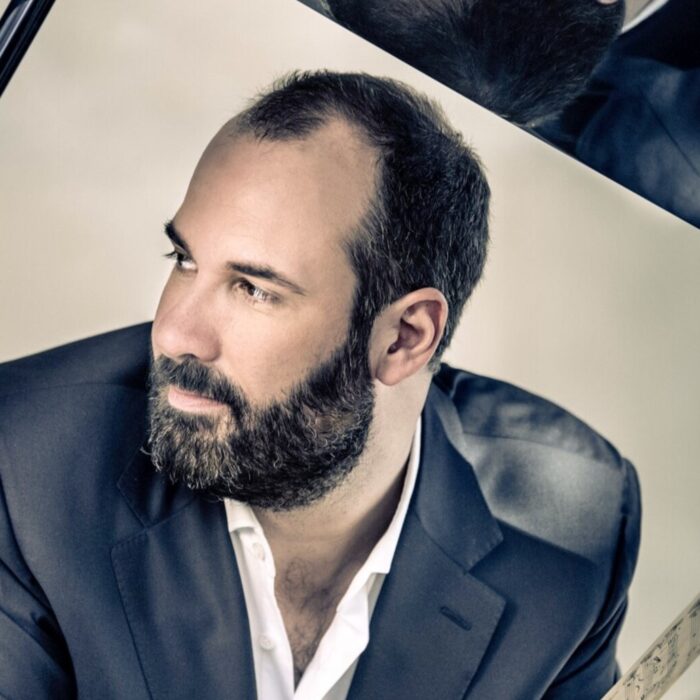
Q & A: Soprano Natalia Tanasii on the Salzburg Festival, Sting, & Strauss
By Ona Jarmalavičiūtė(Credit: Natalia Sedinta)
Moldovan soprano Natalia Tanasii was only 21 when she made her professional stage debut as Countess Almaviva (“Le nozze di Figaro”) at the Moldovan National Opera. Her unforgettable Salzburg Festival debut followed in Krzysztof Warlikowski’s staging of “Elektra” this year.
In an interview with OperaWire, Ms. Tanasii discussed her career moves, repertoire choices, and her preparation process for the Salzburg Festival “Elektra.”
OperaWire: You’ve worked in Oslo, Prague and Zurich, even though you are originally from Moldova. What drew you to these cities?
Natalia Tanasii: Though I come from a beloved, very small country, Moldova, I love the opportunity to discover different countries, cities, and theaters. Being a traveling singer challenges me to do my best wherever I work, and I consider myself fortunate to be chosen to sing in opera houses like Oslo, Prague, and Zurich.
OW: Most of the traditional opera repertoire is quite old and depicts stories of Western European aristocracy. How universal and relevant do you think traditional opera is today?
NT: I believe opera is universal—for every listener, at any time. But, as a very complex genre, opera asks for a certain kind of effort from both the musicians and the audience. Opera, at its most exalted, talks about our human needs and conditions. Finding the best way to embody those conditions—to find the right key for the right door—is not easy. But when it clicks, the audience can tell. As a singer, you become one instrument, one body.
OW: How did you enjoy Salzburg?
NT: Salzburg was very special to me. I enjoyed everything—the river, the streets, the people. It is a great place for music lovers and art lovers in general. The festival is so well organized and administered. The staff is friendly. Whether it’s a small concert or a major opera production, quality and style are consistently everywhere. To sing here is a joy.
OW: There was a lot of uncertainty as to whether the Salzburg Festival would take place this year.
NT: Yes, we were really all expecting another cancellation. Because of that, the first orchestra rehearsal in Salzburg felt like a dream. What a stage and what an orchestra! I had goosebumps listening to that tremendous sound.
OW: You mentioned that today your dream roles are Tatiana and Mimì, whereas in the future you hope to sing the roles of Madama Butterfly and Floria Tosca. What attracts you to this repertoire?
OW: Both Mimì and Tatiana are very close to my heart, and they suit my voice right now. Butterfly and Tosca are roles I hope to move towards. I look forward to bringing my personal color to these characters, to their stories, and to their music. Let’s see what the future brings!
OW: How would you describe your relationship with the music of Richard Strauss, and what does it mean to you to be a part of the staging of his opera Elektra?
NT: Strauss is a genius. You have to keep growing in order to understand his music. Every time you listen to it, you get closer. Strauss makes the human voice into the most difficult instrument to play. To be part of “Elektra” is challenging, but very satisfying. My role is short, but it has beautiful lines and shows the full range of my voice.
OW: Do you feel that you lose your creative strength when rehearsing with different music directors and interpreters?
NT: Even though the main concept comes from the director, we can always ask, suggest, and exchange ideas. Musically as well. You follow the directions of the conductor, but you can always communicate what you need, what feels right to you.
OW: Do you have a favorite performance of “Elektra?”
NT: Of course, while studying and preparing a role, I always listen to other singers—to hear, to compare, to understand. My favorite Elektra is also from the Salzburg Festival—the 2010 production with Irene Theorin in the title role.
OW: Do you admire any non-classical singers? What can an opera singer learn from singers of popular music?
OW: Yes, I admire Sting. His music and his way of delivering it to the audience has the intimacy that I believe we all need. Singers can always learn one from each other, as long as we bring quality and professionalism to what we do.
OW: Is there something particularly meaningful for you about performing in this year’s Salzburg Festival?
NT: Performing at this year’s Salzburg Festival is a huge honor and opportunity. I feel brave, and proud to be a part of it. It is a special year, and also a special time.
OW: Do you ever feel critical or insecure about your performances?
NT: I understand that it always can be better. For me, it is important to not make mistakes, but I am happy with my flaws. I am critical because it helps me to grow, but definitely not overly critical.
OW: What personal future projects excite you the most?
NT: I’m looking forward to my debut as Tatiana in “Eugene Onegin.” That makes me feel very happy. And, of course, all the other roles that I hope to take on as a part of my artistic life.


